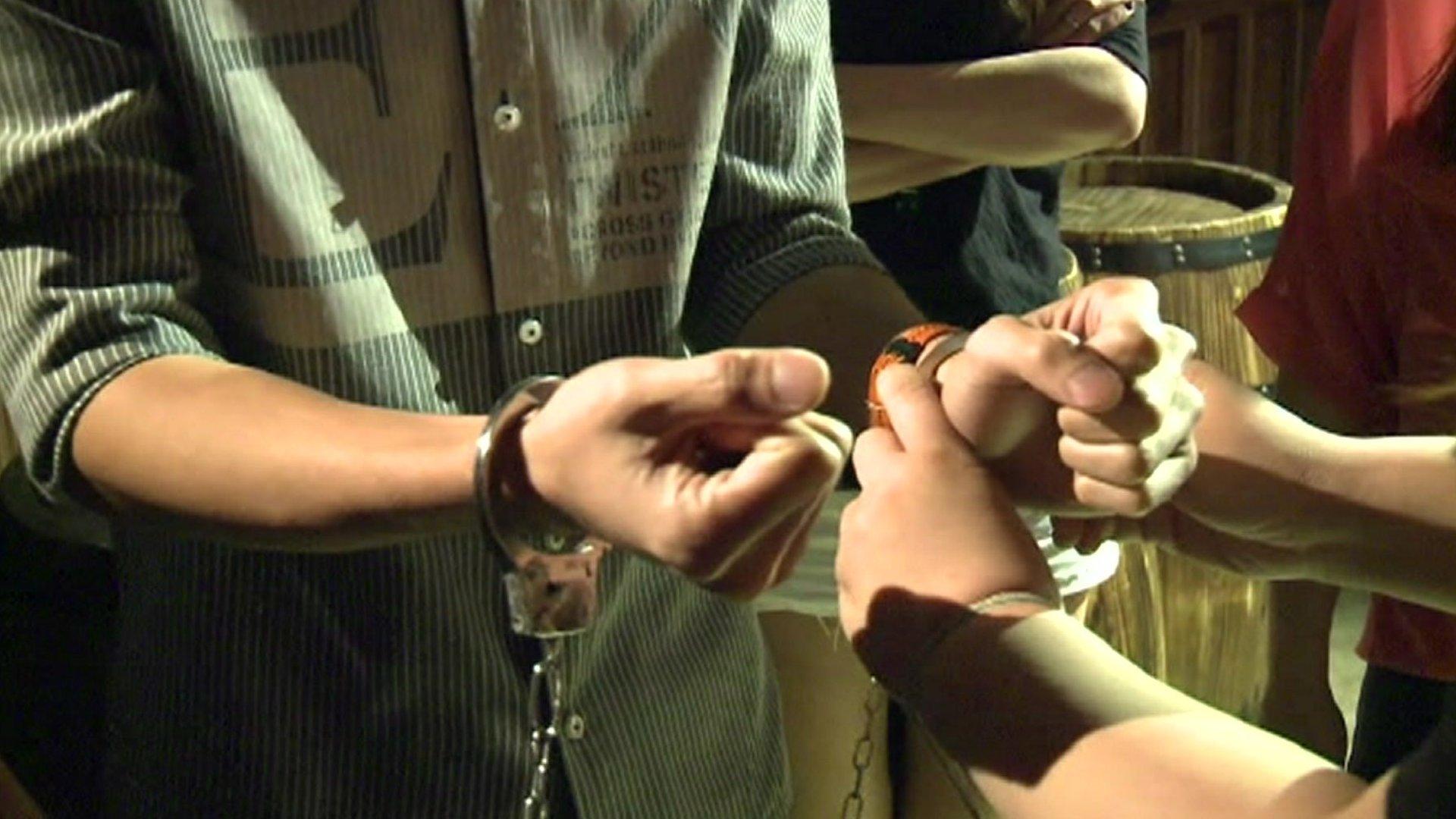The craze of paying to escape from a locked room
- Published
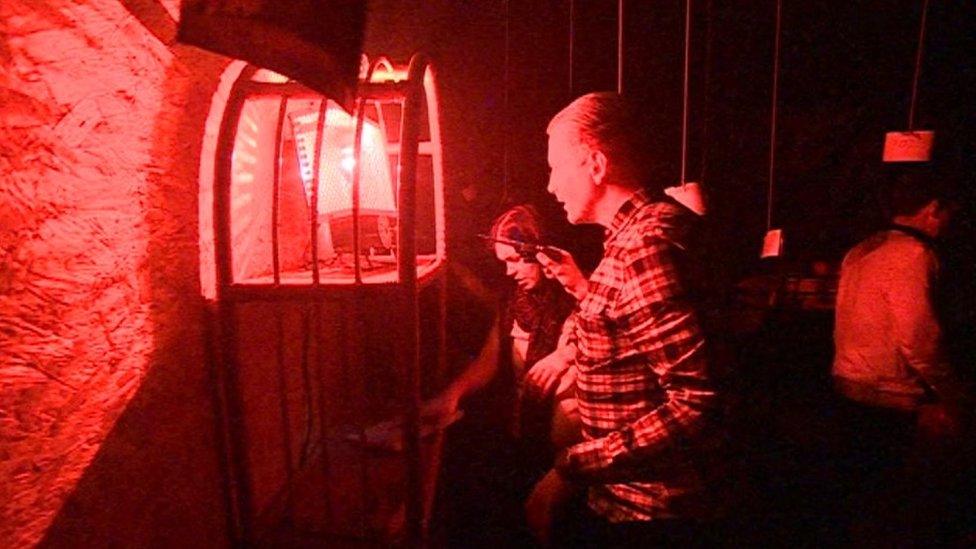
Participants must search for clues and solve puzzles as they attempt to escape from a locked room
Just what is the attraction of paying to be locked in a room for an hour, and having to discover clues and solve puzzles to get out?
The craze of real life escape rooms, or exit games, has really taken off in the past couple of years.
Less than two years ago there were only seven of them in the UK. Now there are nearly 100, and new ones are opening almost every week.
A bit like the fondly remembered TV programmes The Adventure Game and The Crystal Maze, the idea is for teams of people to complete challenges and accomplish tasks to reveal the code or locate the key to escape.
Chris Dickson, who runs the Exit Games UK website, says people like puzzles "because they like surprising themselves".
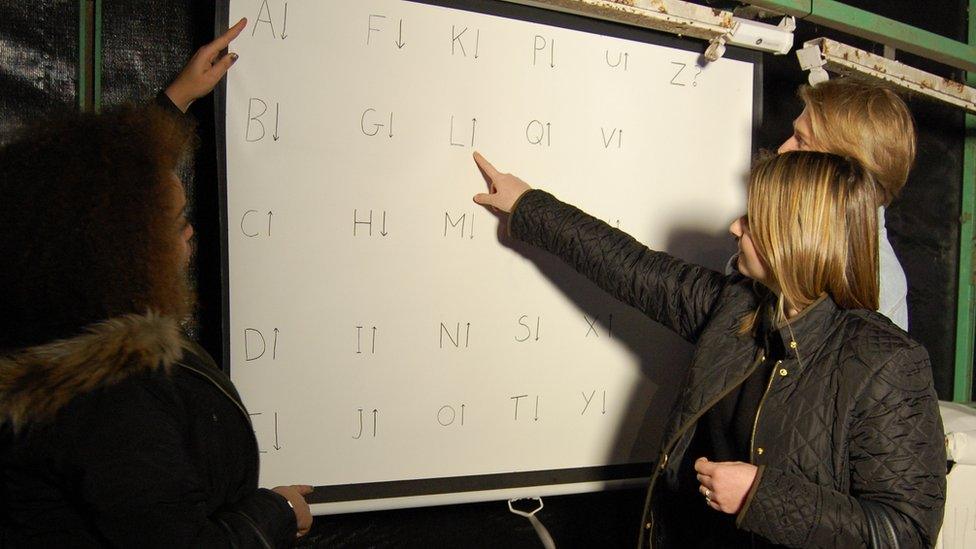
The craze of Exit Games has expanded rapidly in the UK with almost 100 of them now operating
"A good puzzle will look impossible at first, but is designed to be solved. If you find a way to solve it you'll feel good about yourself.
"And perhaps you can crack other problems in your life that look impossible at first glance as well."
James Sweetnam, who owns City Mazes in Bristol, thinks the craze has taken off because people "get the bug".
"People love playing games. It's something you can do with friends and it's great fun.
"Once you've done one, you want to go and do another," he says.
After opening its first escape room just a month ago, the company already has three more planned - in Cardiff, London and Dubai.
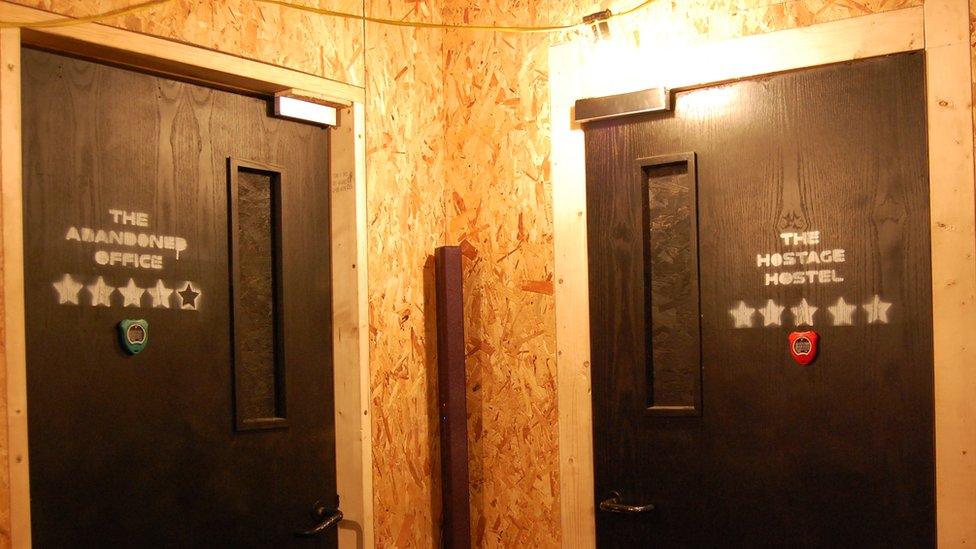
People taking part pay to be locked in a room for up to an hour
Exit games are popular with adults, teenagers, families and even couples on dates.
And because they require teamwork and communication skills they are also popular as team-building exercises and corporate training events.
When the BBC visited City Mazes, a team of solicitors from Bristol was in action, trying to escape from an old abandoned office scenario.
One of them, Ben Scaffee, said the experience was "really interesting and challenging".
"We were looking for something to do on a Christmas night out, and we thought this would be something a bit different.
"We all work together so it was a real team bonding exercise - it was interesting to see people's different strengths."
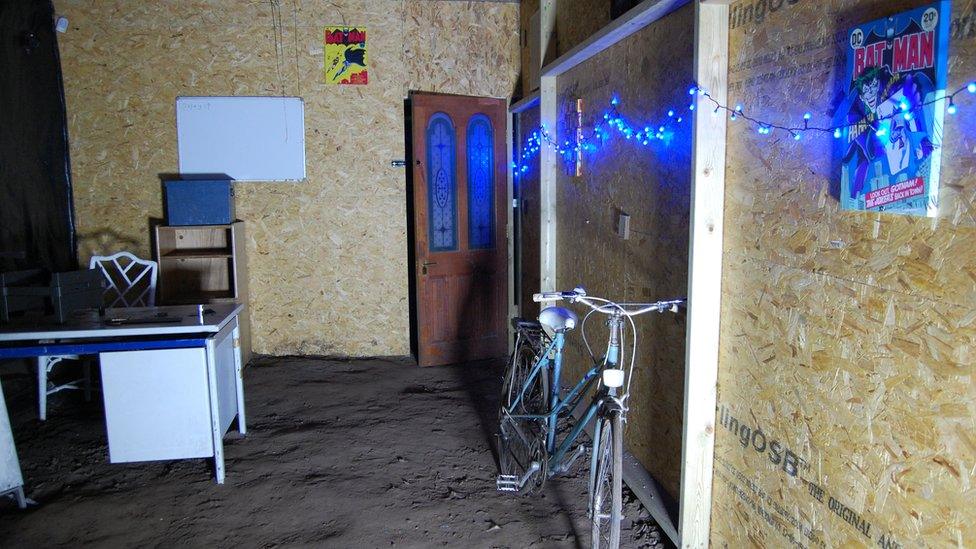
Clue or red herring? Some objects will be helpful, others not so useful
Another participant, Jenna Shipsey, said: "It's different. I've never done anything like it before and never even knew it existed. I think we worked well as a team."
But James Overy was not so impressed: "It was a good team activity, but I didn't really enjoy it as much as I thought I would.
"There were too many people doing one thing at once. It was frustrating that we didn't get out."
Escape games are thought to have begun in Japan about a decade ago, and one in Hungary, which opened in 2011, is believed to have been the first in Europe.
"Budapest is one of the world's hubs for the genre and is thought to have 80 of them," says Chris Dickson.
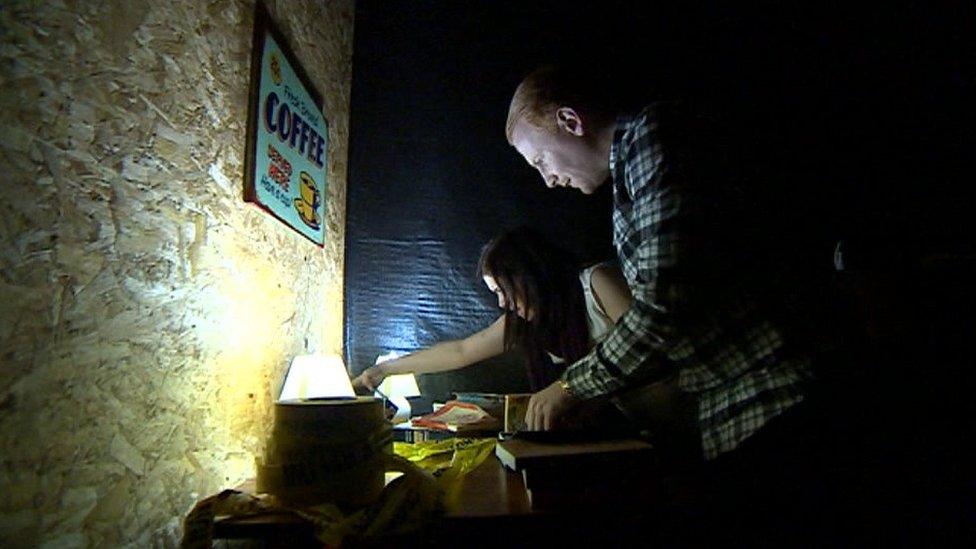
Escape Rooms have become popular as team-building exercises and corporate training events
Other examples can now be found in the USA, Canada, France and Spain, as well as in the UK.
"If the idea sounds like fun at all, you're very likely to enjoy them in practice," said Mr Dickson.
"Games vary, not just in their themes, but also in their emphases.
"Some are puzzle-heavy, some are searching-heavy, some have greater physical demands than others.
"It's clear from the way that the most popular sites have been selling out in advance for many months that there are hundreds of thousands of people who have enjoyed the genre over time in the UK, and the level of quality of the rooms is only getting better and better."
- Published19 December 2014
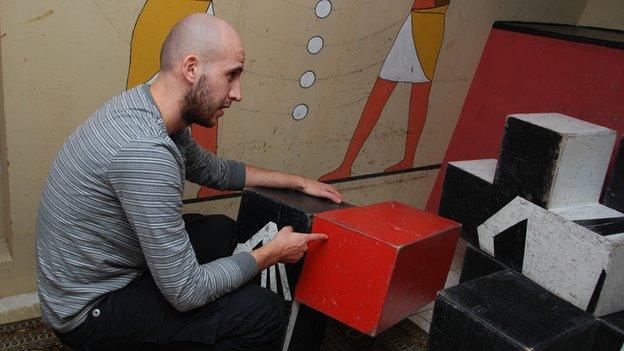
- Published19 December 2014
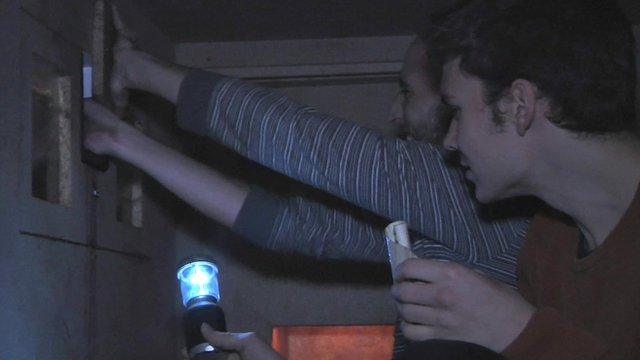
- Published8 October 2013
